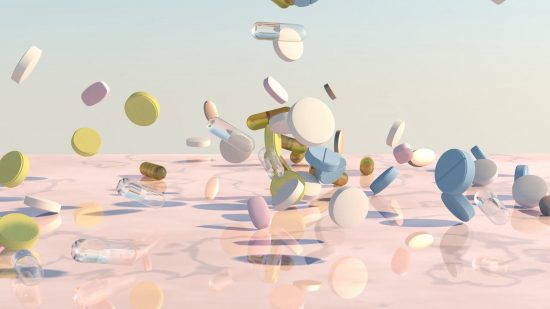Data(dis)ability.
The datalogical, invisible disability, neurodiversity, and the data not-yet-here.
[ this is an ever evolving abstract ]
Data and it’s logic have infiltrated life in technologically advanced societies, producing an invisible, distributed force through which populations are ordered and governed. This – the datalogical – has been engendered by ubiquitous computing and the datafication of life, and where it now exceeds the physicality of technological devices, as an abstract, non-representational structural order at play in life itself. The datalogical is an extension of capitalism and neoliberalism. It shares their agenda, though it works in new invisible modalities to infiltrate the habits, desires, and decision making of individuals; the datalogical seeks to route around individual conscious neurology, to the non-conscious neurological domain.
This research project has developed through and with my experiences of chronic illness and invisible disability, in combination with art practice, and theoretical inquiry. Research has emerged through coming to terms with my diagnosis of ME/CFS in the early stages, and then new experiences of long-covid in the later stages, together with media and critical code theory; feminist disability studies, and as these intersect across crip, queer, decolonial and feminist theory. Art practice held an engagement for paradigmatic change as I became aware of my bodybrain, it’s sensoral, cognitive, and physical differences, as both the limitations and exuberance of what this project, and politics of feminist disability studies means and could be for the context of life within the logic of data.
I aim to question and problematises the terms of success, failure and value at play in this neoliberal–neurological context, as a question concerning ability and disability relations in the datalogical, and thus concerning questions of privilege and discrimination. I give particular attention to invisible disability and neurodiversity as the space where the stakes of this neurological infiltration within the datalogical may become most clear. The goal for this project is to offer an intervention into critical media, digital, or code discussions within the fields of contemporary art and feminist disability studies scholarship, through establishing the datalogical as a problem that concerns, and can be productively addressed through the perspectives of disability.
Key to this project is the development of a practice-based research methodology. I call this ‘disautopraxis’. Rather than sculpture, moving image or any other, I situate the ‘medium’ of practice-based research to be the ongoing experience and embodied knowledges chronic illness or disability. Put in another way, I consider illness or disability to be the medium in which my art practice of CGI moving image and material exploration, together with theoretical inquiry are suspended in, forming both a generative research methodology and an evolving condition of research production.
I am currently in the latter stages of this PhD project, continuing part-time in reduced productivity as a result of my ongoing long-covid experiences. Within this, I hold out that, and as I gather further knowledges of chronic illness and disability, that this project may continue emerge with different peaks of focus. Suggestive at the moment are the relationship between ableist logics within academia and cognitive impairments, where brainfog offers a performative example. Brainfog is a type of dynamic dementia that has been widely experienced by people with long-covid, well as a part of many other conditions.



